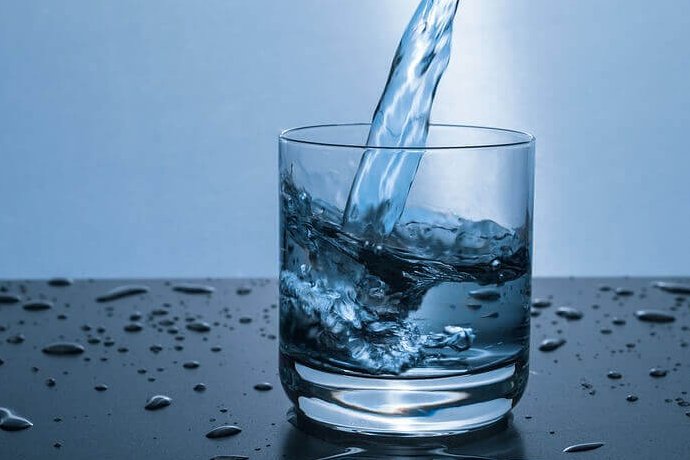Water is an essential constituent of the human body as it makes up approximately 60% of its whole composition. All cells, organs and tissues are primarily comprised of water, making it vital for the correct function of all physiological processes in the body. The deficiency of water in the body is called dehydration. Dehydration will result in a dip in performance for any athlete. Because of this hydration in sport is very important. Water transports nutrients and oxygen into cells, regulates body temperature (thermoregulation), acts as a lubricant and shock absorber to protect joints, the brain and foetus during pregnancy, supports digestion & removal of waste products, and is also required to breakdown food so we can use it as energy.
Proper Hydration for Athletes
To satisfy the demand of water for bodily functions, fluids (typically drinking water) should be consumed regularly throughout the day. If you don’t drink enough water, then you are likely to become dehydrated. In this instance, the body cannot perform at its best and severe dehydration can cause serious health problems, even death. Everybody’s body shapes and sizes are different, but it’s typically recommended to consume 1.5 – 2 litres of water each day to stay hydrated.
There are many different factors that can influence hydration status and need to be considered to apply suitable hydration strategies to prevent dehydration. As previously mentioned, your body utilises body water to function and metabolise food for energy, but other additional stressors that may accelerate body water losses include physical activity/exercise, environmental temperatures, illness, and different dietary practises will also play a part, e.g., high/low carbohydrate intake.
Now that we’ve discussed the importance of proper hydration for athletes, we’ll now move our focus to how hydration is influenced by exercise.
Hydration in Sport ( Hydration During Exercise ) – Role of Sweating
During exercise or any physical activity for that matter, which can include daily chores like gardening or hoovering, our core body temperature will rise. When this occurs our body will automatically respond by trying to maintain a level of homeostasis by cooling itself down (thermoregulation). By doing this, the body will start to sweat allowing water to be evaporated from the skin and release heat. So, there is a great importance of water for athletes.
During prolonged periods of exercise sweat rates can increase and lead to dehydration if fluids are not consumed to alleviate this deficit. The effects of dehydration on sports performance are always negative and in severe conditions, dehydration can be hazardous to health. A loss of just 2% body mass of water can be detrimental to performance, so maintaining a good level of hydration by replacing fluids lost by sweating with appropriate fluids is advantageous to promote performance.
How to stop dehydration?
The first point of call before doing any exercise, or more importantly competing if you’re an athlete, is ensuring that you begin in an optimally hydrated state. So, how does dehydration affect sports performance? Turning up dehydrated puts added pressure on your body to supply muscles with nutrients and oxygen, meaning your heart needs to work much harder to meet that demand resulting in premature fatigue.
There’s a very easy way to determine how hydrated you are by checking your urine. Colour, volume and smell are good indicators of hydration status – dark colour, small amounts and strong smells can all signal dehydration. Monitoring hydration status should be a key part of your training! See the urine colour chart to manage your hydration practises.
During exercise, you should attempt to replace some of the water lost through sweat, but this should never be done at the expense of gastrointestinal (GI) discomfort. Therefore it’s very unlikely that you’ll be able to consume similar amounts to that lost during exercise, as this can be at rates of anything between 0.5-3 litres per hour!! (See below). You’re better off drinking to thirst during training, and with regular hydration monitoring strategies, you can estimate your body’s sweat rate during such exercise and transfer appropriate drinking habits into a competition.
How to rehydrate quickly during exercise?
This can depend on training duration, but water is still the first point of call. This will be sufficient for short (less than 60 minutes) training sessions, but as training increases, and also if you’re training multiple times per day, water alone may not be enough. Sweat contains electrolytes (such as sodium) as well as water, so simply drinking only water when sweat rates are high during prolonged training, you could be susceptible to hyponatremia; an imbalance between body water and sodium levels causing a diluted effect.
In this instance, drinking a solution that contains both water and electrolytes (sodium, potassium & magnesium) is important to correct that balance. Electrolytes aid absorption across the intestine, retain body water in cells and are also involved in muscle and nerve function.
Carbohydrates may also be required during high volume training, but without adequate hydration, it will not be absorbed properly. This is a likely cause of GI distress so before you start with the gels, make sure you’ve got enough fluids on board.
An ideal solution for hydrating before, during and after training is Hydra 10 as it contains the required amount of electrolytes when mixed with 500ml water. It also contains a small amount of carbohydrates that is sufficient to fuel your training and boost brain and muscle function without unwanted GI problems.
Measuring Sweat Rates
Calculating your sweat rate is a very practical and important technique for getting the most from your nutrition to maximise performance. Weighing yourself before and after training and measuring how much you drink during that session is all you need to get a good estimate.
Sweat rate calculation:
Pre-training weight = 75kg
Post-training weight (before showering & dry off any excess sweat) = 73kg
Change in body weight = 2kg
Fluid intake during training = 1 litre
Training duration = 2 hours
Calculations:
- Fluid loss (L) = pre-weight (75kg) – post-weight (73kg) = 2kg
- Total sweat loss (L) = change in weight (2kg) + fluid intake (1L) = 3kg
- Sweat rate (L/hr) = total sweat loss (3kg) ÷ training duration (2hrs) = 1.5 L/hr
How to Rehydrate Quickly Post-Training?
As you’re calculating your changes in body weight during training based on the amount of water is lost, you can use this data to rehydrate for optimal recovery. Drinking 1.5 times the total body weight loss is recommended and this should always contain sodium to promote fluid retention, otherwise, it will be passed out in the urine.
Hydra 10, along with sufficient water in the hours after training, is a good strategy to rehydrate, but when considering other nutritional requirements after training, your body may also need protein and carbohydrates. Milk is a natural source of protein, carbohydrates and sodium, and has been shown to be more effective for hydration, protein synthesis and glycogen replenishment compared to commercialised sports drinks. So if you have milk to hand, then this could be your best choice.
Another factor to consider is the weather. When training in hot conditions, sweat rates will be greater in the body’s attempt to cool itself. Therefore, it would be prudent to include more fluids with added sodium, both during and after training.
Hydration for Athletes: Take Home Points
- Hydration is vital for health as the body is 60% water.
- It helps in nutrient & oxygen transport, energy metabolism, thermoregulation, joint & organ protection, digestion & renal function.
- It is important to regularly drink fluids to maintain hydration, particularly during exercise and recommended to assess your own sweat rates if physically active.
- Just a 2% reduction in body weight from dehydration can negatively impact performance.
- Include electrolytes like sodium in drinks during long training sessions to ensure hydration for athletes.
- Consume 1.5 x total body weight loss after exercise to rehydrate properly.
- Be aware of weather conditions and remember to drink more in the heat.
Also Learn about Is Glutamine Worth it?
References
Cheuvront, S. N. et al. (2003) Fluid balance and endurance exercise performance. https://pubmed.ncbi.nlm.nih.gov/12834575/
Baker, L. B. et al. (2017) Sweating Rate and Sweat Sodium Concentration in Athletes: A Review of Methodology and Intra/Interindividual Variability. https://pubmed.ncbi.nlm.nih.gov/28332116/
Sawka, M. N. et al. (2007) American College of Sports Medicine position stand. Exercise and fluid replacement. https://pubmed.ncbi.nlm.nih.gov/17277604/







